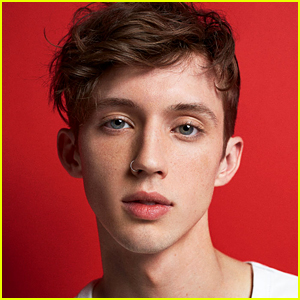Gifted and Beautiful Out YouTuber Troye Sivan
 |
| The Blue Neighbourhood trilogy of songs—“Wild,” “Fools,” and “Talk Me. Troye Sivan with Millions of followers |
This is not only true of, say, videos where YouTubers eat “weird” British candy, play word or music games, or take questions from their audience. YouTubing, as I’ve previously written, has become an important outlet for young gay men, and yet the way YouTubers talk about being gay is often terribly vague and clichéd. In part, this is because the form relies on meme and mimicry (with coming out videos adhering to set formats), but since the dominant audience for these videos is teenage girls, there is also a tendency to translate gay stories into something universal, and by extension optimistic and bromidic, stripping them of their essential queerness.
It is with this in mind that Troye Sivan’s emergence as a singer and songwriterbeyond the world of YouTubing is so significant. Born in South Africa but raised in the suburbs of Perth, Australia, Sivan began YouTubing in earnest four years ago, building up an audience of more than 4 million subscribers. Sivan came out as gay three years ago, in a video that has thus far attracted more than 7 million views. Over the course of the past 12 months, however, his creative attention has moved away from YouTube, where his account is largely inactive.
It is with this in mind that Troye Sivan’s emergence as a singer and songwriterbeyond the world of YouTubing is so significant. Born in South Africa but raised in the suburbs of Perth, Australia, Sivan began YouTubing in earnest four years ago, building up an audience of more than 4 million subscribers. Sivan came out as gay three years ago, in a video that has thus far attracted more than 7 million views. Over the course of the past 12 months, however, his creative attention has moved away from YouTube, where his account is largely inactive.
His debut album, Blue Neighbourhood, was released in December 2015. It received generous critical notices and sold rather well in the English-speaking world, reaching the top 10 of the Billboard 200. He’s appeared on The Tonight Show, sung at the Billboard Music Awards, and been nominated for a MTV Video Music Award. This weekend, Sivan begins a North American tour on the heels of another tour that took him to Europe, Asia, and Australasia. All this while his fellow (or perhaps that should be former fellow) YouTubers are doing such important things as going through their old iPhones.
What’s so wonderfully refreshing about Sivan, in contrast to the confected, cotton candy breeziness of YouTube, where all gay narratives must have sunny, uplifting endings, is that there is an identifiable honesty and grittiness to his music. Especially in the Blue Neighbourhood trilogy of songs—“WILD,” “FOOLS,” and “TALK ME DOWN”—there is beauty and loveliness to be found but also trepidation, marginalization, and the disappointment of unfulfilled dreams. His portrayal of what it is like to be a young gay man on the cusp of adulthood works precisely because it rings true.
This trilogy is, depending how you read it, a tale of forbidden love in stultifying suburbia or a fantasia of unrequited lust. It begins with “WILD”—“You make my heart shake/ Bend and break/ But I can’t turn away/ And it’s driving me wild.” The blue neighborhood is a geographical space (“Trying hard not to fall/ On the way home … Kissing up on fences/ And up on walls”), but it must also refer to the idea that young gay love—concealed from others, sometimes even from the object of one’s affection—can be both transcendent and punishing: “Never knew loving could hurt this good … I’ve never ever wanted to be so bad.”
In the pattern of other queer stories, “FOOLS” articulates the desire to break out of suburbia (“I am tired of this place, I hope people change”) and the pain that comes with unrealized romantic fantasies: “I see swimming pools and living rooms and aeroplanes/ I see a little house on the hill and children’s names … But everything is shattering and it’s my mistake/ Only fools fall for you.” “TALK ME DOWN”—the most beautiful song of the trilogy and indeed the album—then further develops the sense of disillusionment and longing:
I wanna sleep next to you
But that’s all I wanna do right now
And I wanna come home to you
But home is just a room full of my safest sounds
Cause you know that I can't trust myself with my 3AM shadow
I'd rather fuel a fantasy than deal with this alone
I wanna sleep next to you
But that's all I wanna do right now
So come over now and talk me down
Now, of course, this arc is far from unique to Sivan’s music, and on a 16-track album, there’s a case to be made for the contrast of light and shade. (If YouTube is cotton candy, the melancholic electropop of Blue Neighbourhood is a morphine tango.) But the moodier youthful outbursts (who hasn’t said, in their own way, “I’m just a lost boy”?) should be ignored or forgiven when Sivan writes with such an appealing candor, including on “HEAVEN” about the intersection between his sexual and religious identity.
So much of what is ostensibly “good for the gays” in pop music is, oftentimes, nothing of the sort. It’s Sam Smith eating his pronouns on “How Will I Know?” and Nick Jonas shamelessly baiting his newly acquired fans, flaunting his fetishes, and offering tantalizing tales of “technical” gay sex. But with Blue Neighbourhood, freed from the restrictions of YouTube, Sivan has made music that boasts an unashamed queer sensibility: It is about gay lives and gay love, gay happiness, and gay sadness, too.

Comments